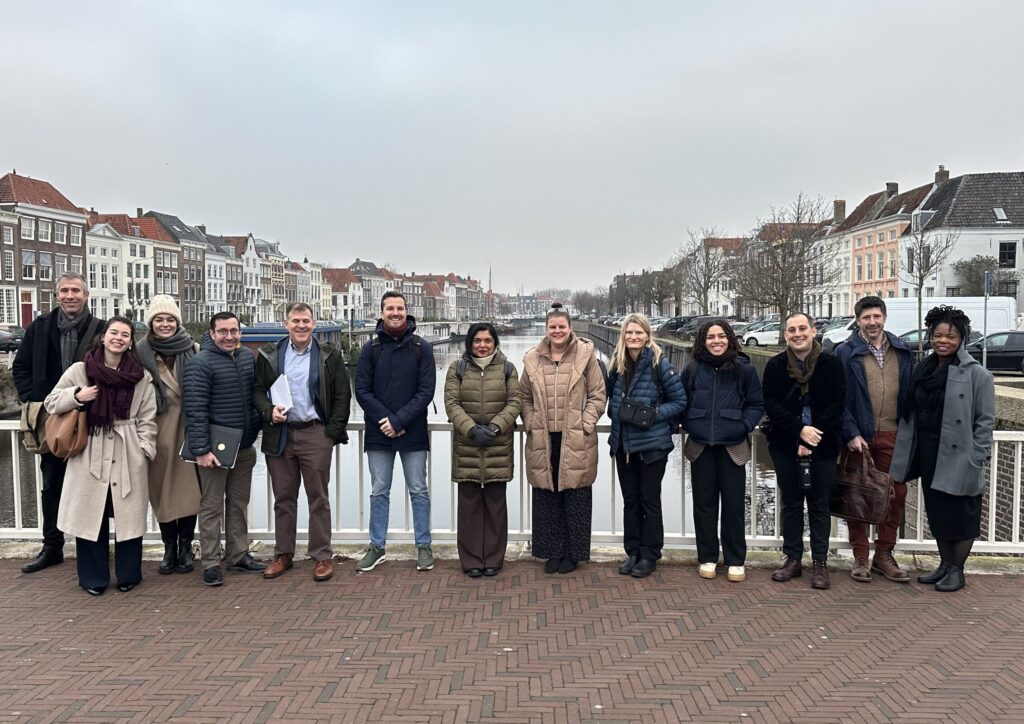From 12 to 13 December 2024, the RIAS organized a conference dedicated to the history and legacy of Black citizenship in the United States. The conference brought together established and early career scholars in the field of African American History from across Europe and the US. Each participant presented their own fascinating insights into a broader discussion surrounding the practices and institutionalized manifestations of exclusion from citizenship rights for African Americans, as well as the resistance to this exclusion, on both federal and state levels.
Questions concerning the inclusion and exclusion of (free) African Americans from political participation, constitutional rights, and even legal personhood have constituted sites of contestation since the American Revolution, both at the federal and state levels. Even before the Dred Scott decision (1857) denied citizenship rights to all African Americans and long before the 14th Amendment (1868) guaranteed federal citizenship to all freed people in the wake of emancipation, free Black communities in both the northern and southern states faced — and often pushed back against — a wide spectrum of legal statuses that varied from near full citizenship rights in parts of northern New England to non-citizenship in the southern slave states.
The slavery and fugitive slave issues of antebellum America revealed fundamental fissures in Americans’ understandings of to whom constitutional rights and democracy should apply. Contested visions and understandings of Black citizenship at both the federal and state levels lay at the heart of the Reconstruction project and the subsequent backlash against it. They constituted the foundational justifications for Jim Crow segregation and the Civil Rights Movement that ultimately led to its abolition. More recently, they inform present-day gerrymandering and voter suppression in various states across the country.
The tensions arising from conflicting visions of Black citizenship have been a driving force in American history and have had a profound effect on the country’s politics and legal justice system. The purpose of this conference was to shed new light on issues concerning Black citizenship as sites of contestation from the origins of the republic to the present day.
With twelve presentations spread over two days, the conference was full of wonderful insights and fascinating perspectives on the long and complicated history of Black citizenship in the United States.

After a brief but warm welcome by the RIAS director and organizer Damian Pargas, the morning session kicked off with two speakers. Associate Professor Natalie Joy (Northern Illinois University) spoke on the role of abolitionists of Native and Black heritage, men such as Charles B. Ray and William P. Powell, who played mayor role in advocating for Black citizenship. Assistant Professor Zach Sell (University of Notre Dame) followed by exploring how colonization, Black exclusion laws, and Black resistance shaped racial citizenship in 19th-century Mid-West, with a particular focus on the colorful character of Joseph E. Williams.
After lunch at the RIAS consisting of Italian sandwiches, the afternoon session of the first day took place. Associate Professor Michael A. Schoeppner (University of Maine) got the conference back on track by giving a brief history of the case brought forward by Charles Lyon, a crucial moment in the creation of the modern American migration regime. Associate Professor Andrew Diemer (Towson University) guided us through the 1858 mid-term election, coming right after the Dred Scott Decision. This “red wave” is also a window on how Black abolitionists engaged with majoritarian, electoral politics during the antebellum period. Associate Professor Micheal Dickinson (Virginia Commonwealth University) ended the afternoon session with a presentation on the major role that urban spaces had in the system of slavery in antebellum America.
After a short break, professor Manisha Sinha (University of Connecticut) gave a fantastic keynote lecture on the rise and fall of the second American republic, covering a period of 60 years, starting with Lincoln’s election, and ending with the ratification of the nineteenth amendment. After a long day of fruitful discussions, the participants headed out to restaurant The Green Room for dinner.
In the morning session of day two, Professor David Silkenat (University of Florida) guided the conference past the civil war and into the 1868 state constitutional conventions. By exploring the life of Charles Pearce and his expulsion from these conventions, Silkenat demonstrated that Black citizenship during reconstruction continued to be precarious. Associate Professor Adam Domby (Auburn University) steered the conference towards the history of Black sailors, how the federal government systematically discriminated in providing pensions to former veterans, and how African Americans challenged this by making claims tot their service and citizenship.
Another lunch was held at the RIAS, this time Dutch sandwiches. Associate Professor Laura Warren Hill (Binghamton University) restarted the conference by shining light upon the case of Betty Tyson, and how her case represents a long history of denying Black women their collective citizenship rights. Assistant Professor Marlene Gaynair (Washington State University) delved into the crucial but overlooked role played by the Jamaican Progressive League in reshaping immigration and citizenship policies of the United States in the mid-20th century. Assistant Professor Morgan P. Vickers (University of Washington) ended the afternoon session discussing the construction of the Santee-Cooper Hydroelectric and Navigation Project in South Carolina, and the devastating effects it had on the Black community that had lived in its vicinity.
After a final break, Christine Mertens and Marcella Schute, two PhD candidates affiliated with the RIAS, gave a presentation on the research they have been conducting for the last years. After an engaging discussion, the conference came to a close.
The conference program can be found here.
The RIAS thanks the speakers and attendees for their participation and insights, and looks forward to the next opportunity to have insightful conversations together.



